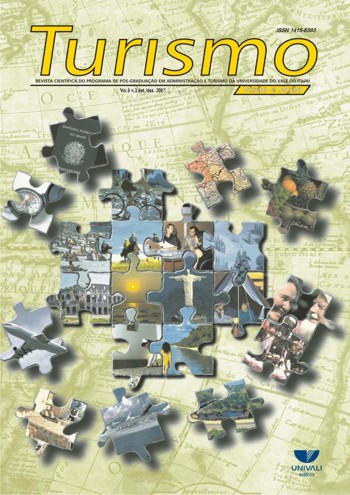The behavior of Expenditure on Brazilian International Travel: from 1947 to 2005
DOI:
https://doi.org/10.14210/rtva.v9n3.p359-374Abstract
This work is based on the premise that macroeconomic variables influence microeconomic decisions relating to foreign travel. The results are important for government planning actions, and for analyzing business planning scenarios, particularly for assisting in forecasting demand for domestic travel (as a substitute for international travel) and planning the offer of services associated with outbound tourism. Given the importance of expenditure on international travel for the Brazilian balance of payments, it is necessary to consider this variable in the forecasts and strategic actions, so that this doesn’t become a bottleneck for the external sector of the Brazilian economy. The data analysis was carried out through comparison of the behavior of the graphs and the coefficients of correlation with the variables related to international travel and the explanatory variables. The results obtained indicate that expenditure by Brazil on international travel is sensitive to the behavior of the GDP, with a positive relationship between expenditure and GDP. For the exchange rate, appreciations/valorizations (depreciations/devaluations) of the Brazilian currency lead to na increase (reduction) in expenditure. If the Brazilian economy enters a new growth cycle, the increase in demand for travel abroad tends to increase considerably, depending on the exchange rate. Key words: Expenditure on international travel; Number of travelers; Real exchange rate.Downloads
Download data is not yet available.












